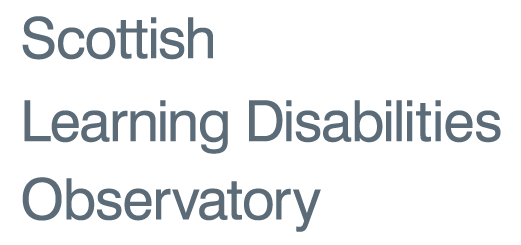Determinants of health and inequalities research

Life expectancy and mortality
People with learning disabilities die, on average, 20 years earlier than people in the general population, often from causes that could be prevented or treated. In our research we examine patterns of mortality and risk factors associated with premature mortality across the lifespan of people with learning disabilities. Read about our research projects here.

COVID-19
People with learning disabilities and autism were significantly impacted during the COVID-19 pandemic. Research projects have been undertaken looking at the outcomes for people with learning disabilities, autism and family carers. Read about our research projects here.

Health and multi-morbidity
People with learning disabilities have a different pattern of health and shorter life expectancy than the general population. People with learning disabilities also experience high levels of multi-morbidity (two or more physical and/or mental health conditions in addition to a learning disability) which is related to poor clinical outcomes including lower quality of life, increased prevalence of long-term conditions and physical disability. Read about our research here.

Oral health
Oral health care is a fundamental part of personal care, and a priority for the World Health Organisation and Scottish Government. Dental problems have important consequences for general nutrition, communication, self-confidence, and participation in society, and they can impact on psychological wellbeing and satisfaction. Adults with intellectual disabilities experience extensive health inequalities, yet their oral health has largely been overlooked. In our research, we examine the factors which lead to poor oral health for adults with learning disabilities including over-prescription of medications with side effects which lead to tooth decay and loss, and also sugary liquid medication, poor diet and poor dental hygiene. Find out more about our research here.

Children and young people's health
Children and young people with learning disabilities are at higher risk of experiencing poorer physical and mental health, and premature mortality is 12 times more common, compared to other children and young people. In our research, we examine among children and young people with learning disabilities, patterns of deaths, hospital admissions and prescribing for mental ill-health. Read about our projects here.

Health care services
People with learning disabilities face barriers in accessing health services. Increasing access to high quality health care services is vital to reducing health inequalities for people with learning disabilities. In this area of research we have investigated management of long term health conditions, patterns of mental health, hospital admissions and the risk of avoidable general hospital admissions. Read about our research projects here.

Carers and families
Carers and family members provide essential support for many people with learning disabilities. Supporting a family member with learning disabilities can be both a highly rewarding and demanding role. Our research investigates the experiences of family carers and how caring impacts their health and wellbeing. These projects are discussed in more detail here.

Wider determinants of health
The health and wellbeing of people with learning disabilities is influenced by many factors. They are more likely to experience hate crime and violence than other groups, women with learning disabilities experience barriers to realising their reproductive rights and young people often receive inadequate support through transitions to adulthood. Read more about our work in these areas here.

Autism
People with autism experience poorer mental and physical health and may be more likely to die younger than their peers without autism, but existing evidence is still limited. In our research, we examine patterns and time trends of health vulnerabilities and inequalities experienced by people with autism across the lifespan. Read about our research projects here.
